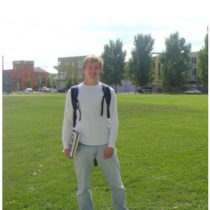Landscape Architecture for Landscape Architects › Forums › GENERAL DISCUSSION › Another Free Project Idea: Botany of Desire
- This topic has 1 reply, 3 voices, and was last updated 14 years, 5 months ago by
 Jonathan Nelsen.
Jonathan Nelsen.
-
AuthorPosts
-
November 2, 2009 at 1:11 pm #172464
 ncaParticipant
ncaParticipantI haven’t watched this in it’s entirety yet, but just after the first few minutes I think this has ‘student project’ written all over it, confusing diagrams and all.
http://video.pbs.org/video/1283872815/
Has anyone else seen this?
November 2, 2009 at 7:16 pm #172467 Jonathan NelsenParticipant
Jonathan NelsenParticipantThere is a book I have read titled Botany of Desire…Talks about different plants such as Apple, Cannabis, etc, and relates them to things people desire. I read it a long time ago so dont remember exactly but very interesting non the less.
From Amazon.com:
Working in his garden one day, Michael Pollan hit pay dirt in the form of an idea: do plants, he wondered, use humans as much as we use them? While the question is not entirely original, the way Pollan examines this complex coevolution by looking at the natural world from the perspective of plants is unique. The result is a fascinating and engaging look at the true nature of domestication.In making his point, Pollan focuses on the relationship between humans and four specific plants: apples, tulips, marijuana, and potatoes. He uses the history of John Chapman (Johnny Appleseed) to illustrate how both the apple’s sweetness and its role in the production of alcoholic cider made it appealing to settlers moving west, thus greatly expanding the plant’s range. He also explains how human manipulation of the plant has weakened it, so that “modern apples require more pesticide than any other food crop.” The tulipomania of 17th-century Holland is a backdrop for his examination of the role the tulip’s beauty played in wildly influencing human behavior to both the benefit and detriment of the plant (the markings that made the tulip so attractive to the Dutch were actually caused by a virus). His excellent discussion of the potato combines a history of the plant with a prime example of how biotechnology is changing our relationship to nature. As part of his research, Pollan visited the Monsanto company headquarters and planted some of their NewLeaf brand potatoes in his garden–seeds that had been genetically engineered to produce their own insecticide. Though they worked as advertised, he made some startling discoveries, primarily that the NewLeaf plants themselves are registered as a pesticide by the EPA and that federal law prohibits anyone from reaping more than one crop per seed packet. And in a interesting aside, he explains how a global desire for consistently perfect French fries contributes to both damaging monoculture and the genetic engineering necessary to support it.
Pollan has read widely on the subject and elegantly combines literary, historical, philosophical, and scientific references with engaging anecdotes, giving readers much to ponder while weeding their gardens. –Shawn Carkonen –This text refers to an out of print or unavailable edition of this title.
November 2, 2009 at 7:20 pm #172466 ncaParticipant
ncaParticipantYep, this is the same thing in film format. Pollan narrates most of the film.
I just thought there was so much room for project ideas in there from the use of orchards to the interaction of humans with plants and their reproduction and commercial value. There is so much potential if only I was a student and not a job seeker.
November 3, 2009 at 11:40 am #172465 Trace OneParticipant
Trace OneParticipantI loved it, everything except the title..Pollan is doing a lot, despite the fact that he is only a journalist, to bring the worlds attention to plant/food issues..
-
AuthorPosts
- You must be logged in to reply to this topic.

